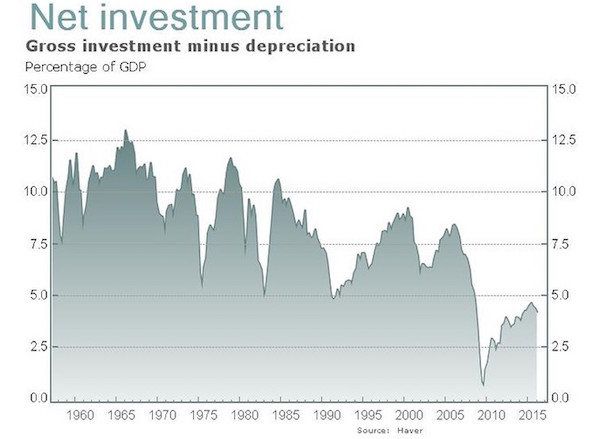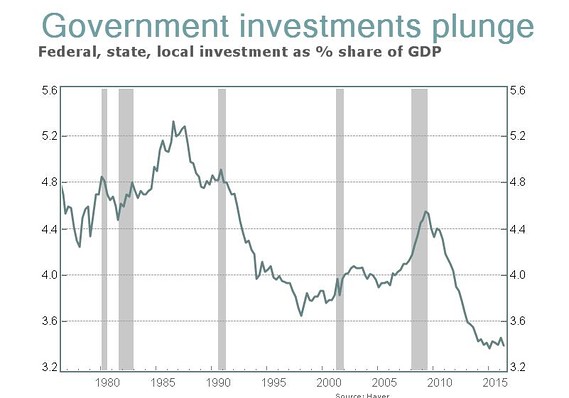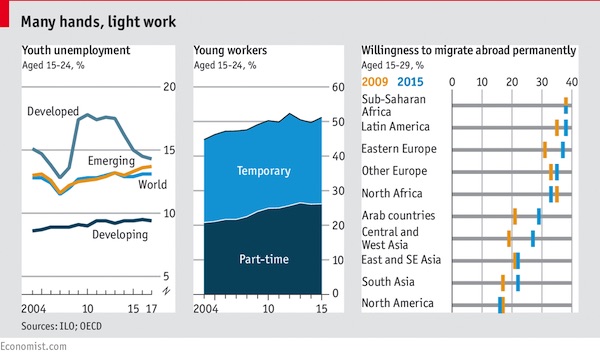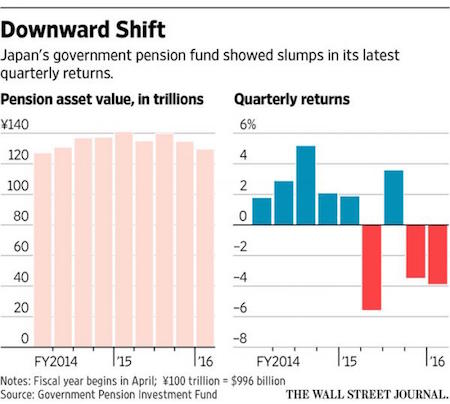
Andy Warhol Queen Elizabeth, Reigning Queens Series 1985

London Bridge is down.


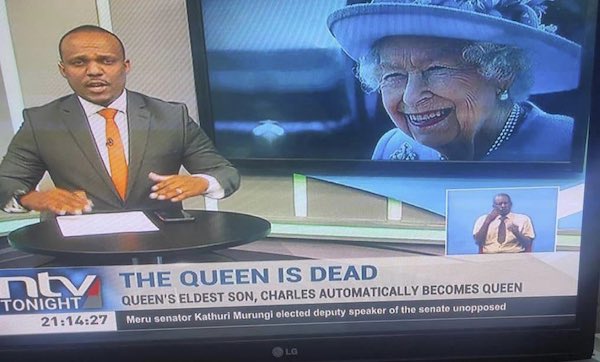
“Can’t believe they are going to make a MAN queen. This woke nonsense has gone too far.”

Ghana TV
https://twitter.com/i/status/1567873066260172800

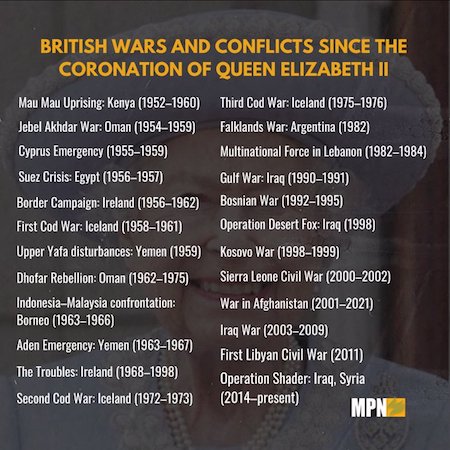

Draghi

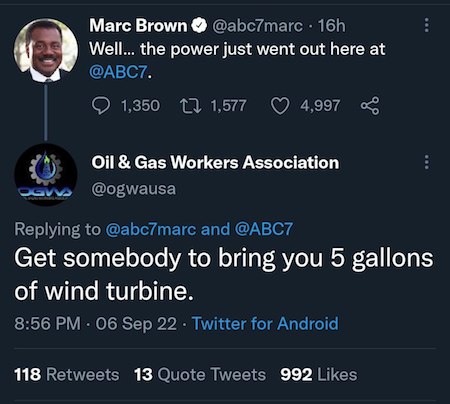


“For those who claim Russia is waging an “energy war” well, perhaps they are, but let’s not forget the west is attempting to wage an economic one! ”
• The Price Of Poker (Denninger)
It appears that Putin’s government has announced that Nordstream I will not be restarted until western sanctions are lifted. “Russian natural gas supply via the Nord Stream pipeline to Germany will remain shut until the Western sanctions that impede gas turbine repairs are lifted, Kremlin spokesman Dmitry Peskov said on Monday. The gas crisis in Europe took a turn for the worse at the end of last week, when Russian gas giant Gazprom said after three-day maintenance ended on Friday that Nord Stream would remain shut until “operational defects in the equipment are eliminated,” upping the ante in its gas war against Europe.” As a reminder the pipeline had only one operational gas-turbine driven pump which, according to Gazprom, requires maintenance.
There are usually five of them available for service with a sixth held in reserve as a spare at that specific station through which the gas flows. As things stand now there are no spares and one sort-of-operating one that was shut down as a result of a fault discovered during an inspection. There are people saying that Russia could operate the one with the leak anyway but why does anyone believe there is any sort of duty to do so and shave the margins of safety? There clearly is no such duty and, further, the gas is Russia’s so if you think you have the right to sanction a nation and then demand they trade with you its rather obvious to me that your IQ is smaller than your shoe size. For those who claim Russia is waging an “energy war” well, perhaps they are, but let’s not forget the west is attempting to wage an economic one!
I’ve never in my life seen a “war” in which the people backing one side of it demand that the party on the other side continue to trade with them and not only that, but then attempt to put in price controls such that they demand not only the product but also what they pay for it. Putin obviously thinks that’s crazy. Now the West and Europe in particular get to choose: Either drop the sanctions or you get no gas. I fail to understand how this cannot be viewed as an entirely-reasonable position unless your view is that Russia has no right of national sovereignty at all, including the natural resources that lay within her border and those that transit same. If that’s your position — that the West has the right to impose a political and economic structure on a sovereign government then just come out and say it.
Read more …

“Beijing has been clear that it believes the world arrived at this point due to Washington’s interference in Kyiv.”
• Putin: The West is Failing, the Future is Asia (Celente)
Russian President Vladimir Putin took an unveiled swipe at the U.S. Wednesday and said “Western nations” are hurting everyone — including their own people in their effort to maintain global order. “The West is failing,” Putin said. “The future is Asia.” Putin will meet with his Chinese leader Xi Jinping at the at the Shanghai Cooperation Organization summit in Uzbekistan next week, according to Russian media. Russia sees China as an economic lifeline. China is Russia’s top trade partner with total trade last year jumping 35.9 percent to a record $146.9 billion. Reuters said trade between the two countries jumped 50 percent after the 2014 annexation of Crimea. That trend has continued. During the first five months of the year, trade between the countries hit $65.81 billion, up 28.9 percent from 2021.
Despite attempts from the Biden administration, China has refused to speak out against the Russian invasion. There’s a theory that when Putin met with Xi at the Winter Olympics in Beijing, he got the Chinese leader’s blessing before the conflict. Russia would be sunk without China’s support. Sergey Lavrov, Russia’s top diplomat, has mentioned a new “world order.” “We, together with you [China], and with our sympathizers will move towards a multipolar, just, democratic world order,” Lavrov said in a video statement in April. President Joe Biden mentioned an emerging ‘new world order’ earlier that month and said it must be led by the U.S. Beijing has been clear that it believes the world arrived at this point due to Washington’s interference in Kyiv.
Shortly after the conflict started, Hua Chunying, the Chinese foreign ministry spokeswoman, said the invasion of Ukraine could have been avoided. “China has taken a responsible attitude and persuaded all parties not to escalate tensions or incite war,” she said. “Those who follow the U.S.’s lead in fanning up flame and then shifting the blame onto others are truly irresponsible.” The Russian president said the ongoing economic global crisis was triggered by elites in the West “who would not, or even cannot, acknowledge objective facts” about changes in the world. He said they only see a “world order that benefits only them, forcing everyone to live under the rules, which they invented and which they regularly break and constantly change depending on the situation,” The Global Times reported.
Putin Western elites
Read more …

“Russia is ready for winter. There will be warmth and light everywhere.”
• Asia’s Future Takes Shape In Vladivostok, The Russian Pacific (Escobar)
Pavel Sorokin, Russian First Deputy Minister of Energy, dismissed the notion of a storm or typhoon in the energy markets: “It’s a far cry from a natural process. It’s a man-made situation.” The Russian economy, in contrast, is seen by most analysts as slowly but surely designing its Arctic/Asian cooperation future – including, for instance, the creation of a sophisticated trans-shipment infrastructure for Liquified Natural Gas (LNG). Energy Minister Nikolay Shulginov made sure that Russia will actually increase its gas production, considering the rise of LNG deliveries and the construction of Power of Siberia-2 to China: “We will not merely scale up the pipeline capacity but we will also expand LNG production: it has mobility and excellent purchases on the global market.”
On the Northern Sea Route, the emphasis is on building a powerful, modern icebreaker fleet – including nuclear. Gadzhimagomed Guseynov, First Deputy Minister for the Development of the Far East and the Arctic, is adamant: “What Russia has to do is to make the Northern Sea Route a sustainable and important transit route.” There is a long-term plan up to 2035 to create infrastructure for safe shipping navigation, following an ‘Arctic best practices’ of learning step by step. NOVATEK, according to its deputy chairman Evgeniy Ambrosov, has been conducting no less than a revolution in terms of Arctic navigation and shipbuilding in the last few years.
Kniessel, the former Austrian minister, recalled that she always missed the larger geopolitical picture in her discussions when she was active in European politics (she now lives in Lebanon): “I wrote about the passing of the torch from Atlanticism to the Pacific. Airlines, pipelines and waterways are moving East. The Far East is actually Pacific Russia.” Whatever Atlanticists may think of it, the last word for the moment might belong to Vitaly Markelov, from the board of directors of Gazprom: Russia is ready for winter. There will be warmth and light everywhere.”
Read more …

“There is the Chinese one kilo bar four-nines standard, which is widely owned, has already been adopted throughout Asia, and is traded even on Comex.”
• Putin’s 12,000 Ton Gold Hoard Sets The Stage For Asian Bretton Woods (Macleod)
Unreported by western media, there are some interesting developments taking place in Asia over the future of currencies. Earlier this summer, it emerged that Sergei Glazyev, a senior Russian economist and Minister in charge of the Eurasian Economic Commission (EAEU), was leading a committee planning a new trade currency for the Eurasian Economic Union. [..] Logic suggests that a gold-backed currency will be the outcome of Glazyev’s EAEU committee’s trade currency deliberations after all, because of a subsequent announcement from Moscow concerning a new Russian bullion market.
In accordance with western sanctions, the London Bullion Market refused to accept Russian mined and processed gold. It was then natural for Russia to propose a new gold market based in Moscow with its own standards. It is equally sensible for Moscow to set up a price fixing committee, replicating that of the LBMA. But instead of it being the basis for a far larger unallocated gold deposit account offering by Russian and other banks, it will be a predominantly physical market. Based in Moscow, with a new market called the Moscow International Precious Metals Exchange, the Moscow Gold Standard will incorporate some of the LBMA’s features, such as good delivery lists with daily, or twice daily fixings. The new exchange is therefore being promoted as a logical replacement for the LBMA.
But could that be a cover, with the real objective being to provide a gold link to the new trade currency planned by Glazyev’s EAEU committee? Timing suggests that this may indeed be the case, but we will only know for sure as events unfold. If it is to be backed by gold, the considerations behind setting up a new trade currency are fairly straightforward. There is the Chinese one kilo bar four-nines standard, which is widely owned, has already been adopted throughout Asia, and is traded even on Comex. Given that China is Russia’s long-term partner, that is likely to be the standard unit. The adoption of the Chinese standard in the new Moscow exchange is logical, simplifying the relationship with the Shanghai Gold Exchange, and streamlining fungibility between contracts, arbitrage, and delivery.
Read more …

The focus is gradually shifting.
• Six Months In, What Exactly Does Russia Hope To Achieve In Ukraine? (Trenin)
Putin’s latest comments reveal that Moscow’s thinking has shifted and compromise is no longer on the agenda Last week, Russian President Vladimir Putin referred to Ukraine as an “anti-Russian enclave” which has to be removed. He also said that the Russian soldiers taking part in the military operation there were fighting for their “own country.” These statements carry important implications. Over the last six-plus months, the mantra of the Russian officialdom has been that all aims of the offensive will be reached. On purpose, however, the specific objectives, such as how far Moscow’s forces plan move into Ukraine, have never been spelled out. This cannot but raise speculation about what the Kremlin is actually hoping to achieve. The only person who can authoritatively answer that question, however, is the president, and second-guessing him makes no sense.
Yet, two things cannot escape close attention. One is the radicalization of Moscow’s position on Ukraine as a result of both Western policies and Kiev’s actions; two is the widening gap between the minimum result of the military campaign that Russia can be satisfied with, and the maximum amount of what the US and its allies can accept. [..] Shortly after the start of hostilities Russia and Ukraine began peace talks. In late March 2022 at a meeting in Istanbul, Moscow demanded that Zelensky’s government recognize the sovereignty of the two Donbass republics within their constitutional borders, as well as Russia’s own sovereignty over Crimea, which was formally incorporated into the Russian Federation in 2014, plus accept a neutral and demilitarized status for territory controlled by Kiev.
At that point, Moscow still recognized the current Ukrainian authorities and was prepared to deal with them directly. For its part, Kiev initially appeared ready to accept Moscow’s demands (which were criticized by many within Russia as overly concessionary to Ukraine), but then quickly reverted to a hardline stance. Moscow has always suspected that this U-turn, as on previous occasions, was the result of US behind-the-scenes influence, often aided by the British and other allies. [..] As the fighting in Ukraine quickly became a proxy war between Russia and the US-led West, Russia’s views on Ukraine’s future radicalized further. While a quick cessation of hostilities and a peace settlement on Russian terms in the spring would have left Ukraine, minus Donbass, demilitarized and outside NATO, but otherwise under the present leadership with its virulently anti-Russian ideology and reliance on the West, the new thinking, as Putin’s remarks in Kaliningrad suggest, tends to regard any Ukrainian state that is not fully and securely cleansed of ultranationalist ideology and its agents as a clear and present danger; in fact, a ticking bomb right on Russia’s borders not far from its capital.
Dmitry Trenin is a Research Professor at the Higher School of Economics and a Lead Research Fellow at the Institute of World Economy and International Relations. He is also a member of the Russian International Affairs Council
Read more …

“Johnson’s unelected replacement, MissTrust..”
• The Coming Victory of Native Europeans in the UK and the EU (Batiushka)
A spectre is haunting Europe – it is the spectre of poverty. The bets are now on as to which European country will collapse first. Among the front runners you will find Portugal, Latvia, Ireland, Romania, Italy, Moldova, Spain, the Czech Republic, Germany, Bulgaria, France and Slovakia. But perhaps none of them is more likely to fall first than the UK. For it has a new Prime Minister, who, unthinkably, is an even greater clown than the last one and even threatens to press the nuclear button. Let me digress for a moment with a visit to the islands off the coast of North-Western Europe.
My visit to the UK, after Wiesbaden in Germany, came at a time when the English peasants were revolting, but the governing elite did not yet know it. In one last Marie-Antoinette farewell moment the unlate, unlamented Mr Johnson advised the revolting peasants of the UK to spend £20 buying a new and more economic kettle, so that after two years (if the Chinese-made kettle lasted that long) they could save £10 a year on their £2,500 + annual energy bills. ‘Let them eat cake’, he may as well have shouted to the breadless masses. The effete and wealthy Tory Party never understood the people. Johnson’s unelected replacement, MissTrust, for whom we should beg the CIA (which has long funded Nobel Prizes) to fund a Nobel Prize for Geography (after all Mr Obama won a Nobel Prize for Peace), faces many challenges:
Firstly, there is the self-inflicted mess Mr Johnson made of Brexit, notably by separating Northern Ireland from Great Britain as regards imports and exports and failing to impose any laws for necessary immigration and against unnecessary immigration. It was the Tory Party that imposed on the British people the then Common Market (later becoming the EU) in 1973. The people never asked to join – they were never consulted. Secondly, there is the self-inflicted covid chaos. Tory-imposed lockdowns bankrupted many and were hated by even more. The much-vaunted vaccines turned out to be useless after three months, and even extremely harmful to some. Today a million vaccinated Britons have covid week in, week out. The people never asked for lockdowns and false vaccines – they were never consulted.
Thirdly, there is the self-inflicted energy crisis and the spiralling energy and food prices, caused by illegal Tory government sanctions against the Russian decision to rescue Russians from Kiev’s genocide and persecution. The people never asked to be cold and hungry – they were never consulted. Fourthly, there are the self-inflicted dramatic problems of always underfunded national infrastructure, whether that of the Health Service (people dying in their homes and in ambulances because the hospitals are so full that they have to wait for many, many hours before they can be admitted), the ‘privatised’ electricity, gas, water and telecom companies, airports and railways, which are all breaking down. The people never asked for public services which are appalling because they are private – they were never consulted.
Read more …

“Zelensky ignored four draft notices on 15 April 2015, 23 June 2014, 15 August 2014, and 10 October 2015…”
• A Dirty Joke: Ukraine’s Hero Comedian President Zelensky (Celente)
During the 2019 campaign, Zelensky’s history of draft-dodging became a focal point that former President Petro Poroshenko tried to scrutinize. On April 13, 2019, Ukraine’s Defense Ministry took to Facebook to confirm that Zelensky ignored four draft notices on 15 April 2015, 23 June 2014, 15 August 2014, and 10 October 2015. “Citizen Zelensky V.O. did not arrive at the military commissariat at his call,” the post read. [..] Zelensky has been criticized since the start of the invasion for not allowing fighting-aged men to leave the country and using the strategy of issuing military summonses at gas stations and other public areas. The New York Times reported that young men in Ukraine are required to do military service “unless they fall into an exempt category, like being enrolled in a university, having a disability or having at least three children.”
The European Court of Auditors released a special report in September that found “grand corruption and state capture” were still widespread in the country despite 20 years of European Union efforts to intervene and help in its reform agenda. “The EU has long been aware of the connections between oligarchs, high-level officials, politicians, the judiciary and state-owned enterprises. However, it has not developed a real strategy for targeting grand corruption,” the auditors said in a statement. Up until the Russian invasion, the EU has been the largest donor to Ukraine. The European Commission has committed around €5.6 billion to macro-financial assistance programs and €2.2 billion to assistance programs since 2014, the statement said. The Commission also guarantees European Investment Bank loans of €4.4 billion.
Juhan Parts, the member of the European Courts of Auditors responsible for the report “despite varied support the EU has offered to Ukraine, oligarchs and vested interests continue to undermine the rule of law in Ukraine and to threaten the country’s development.” Freedom House’s 2022 report lists Ukraine as “partly free,” with a score of 61 out of a possible 100.
Read more …

No, Russia will not leave.
• Ukraine Planned To Use IAEA Experts As A Tool For Blackmail (Ritter)
On August 29, Grossi’s team travelled to Kiev, where the next day they met with Ukrainian President Vladimir Zelensky. Zelensky told Grossi that Ukraine believed it was critical for the IAEA to press home its demands for a demilitarized zone, which would enable Ukraine to take control of the plant. On September 1, Grossi and his team set off for the Zaporozhye facility. Prior to their arrival, they were stopped by Ukrainian officials, who warned Grossi that military activity in and around the facility had picked up that morning. According to Russian military sources, the Ukrainian army had attempted to seize the power plant in a commando raid that was thwarted by Russian forces.
As Grossi’s 14-man team arrived at the power plant, the sound of nearby combat could be readily heard. The deteriorating security situation at the facility prompted Grossi to withdraw the bulk of his team later that day. A six-person sub-team was tasked with remaining on-site for a few days longer, after which four inspectors would depart, leaving behind a two-person element, who would provide a permanent presence, on a rotational basis, at the facility. Afterwards, Grossi stated that the mission had been valuable. “We knew a lot before too, but of course it is being inspected now. We are trying to do a thorough assessment of the current situation.”
As to the security of the plant, Grossi noted that “[t]he physical integrity of the facility has been violated not once, but multiple times. This is by no means acceptable.” In addition to their personal observations, the team was presented with a petition signed by 20,000 residents from Russia-controlled parts of the Zaporozhye region demanding that the IAEA condemn the attacks on the nuclear power plant, which the signatories said were conducted solely by the Ukrainian forces. This was not the result either the Ukrainian government or its Western backers could have envisioned when they were pushing for the mission’s dispatch in mid- to late-August.
Read more …

Dangerous.
• Pentagon Sent GPS-Guided Rounds To Ukraine (RT)
The Pentagon is spending over $90 million to acquire new M982 Excalibur munitions, Bloomberg reported on Thursday. The department is replacing a stockpile previously sent to Ukraine, according to budget documents cited in the article. The 155mm shells, each of which costs tens of thousands of dollars and may go well over $100,000, depending on the variant and year they were manufactured, are designed to strike within two meters of the GPS coordinates of a target. The munitions were developed by Raytheon and BAE and are certified to be used with a number of NATO artillery pieces, including American M777 howitzers and German PzH2000 howitzers, which Ukraine possesses.
A document issued last month says that the Pentagon will spend $92 million to purchase “replacement M982 Excalibur munitions transferred to Ukraine in support of the international effort” to undermine Russia’s military operation, as quoted by Bloomberg. The money buys roughly 900 projectiles, a military analyst estimated for the news agency. The funds come from more than $40 billion in emergency spending authorized by the Additional Ukraine Supplemental Act, which US President Joe Biden signed into law in May. The Pentagon was allocated at least half of the sum, including $9 billion to replenish US military stocks.
The US did not officially announce the delivery of Excalibur munitions to Kiev. But Ukrainian troops have shared videos on social media in which they apparently fired the shells on the battlefield. In one video, reposted by a Russian war correspondent as proof that the precision rounds were being used by the Ukrainian side, a Ukrainian soldier jokingly remarked that his unit will “throw to the wind a heap of money” before loading the munition into a gun and firing it. Canadian media reported in April that their country was quietly shipping Excalibur shells to Ukraine to complement the declared deliveries of the US-made M777 howitzers.
Read more …

“..his dream is to one day see Russia become a member of the EU..”
• Italy’s Berlusconi Believes He Can Help Resolve Ukraine Crisis (RT)
Western attempts to force Russia to change course regarding Ukraine with economic sanctions are backfiring, former Italian Prime Minister Silvio Berlusconi has said. The conflict must be resolved through diplomacy, he added, offering himself and former German Chancellor Angela Merkel as potential mediators. Berlusconi, who is currently running for a seat in the Italian Senate, offered his diplomatic services on Wednesday night on the TV program Porta a Porta. Discussing the situation in Ukraine, he argued that Russia will not be swayed by sanctions from the US and its allies. The recent G7 initiative to enforce a price cap on Russian oil will also fail, since there will be high demand for Russian crude in countries like China and India, he added.
Berlusconi lamented the fact that Russia is being pushed into allying itself with China, while his dream is to one day see Russia become a member of the EU. Host Bruno Vespa asked if Berlusconi could leverage his personal relationship with Russian President Vladimir Putin. The politician said the hostilities in Ukraine have to end with diplomacy, so someone will eventually need to be the mediator between Putin and Ukrainian President Vladimir Zelensky. “There is a person who could do that instead of me or together with me. It’s former German Chancellor Angela Merkel,” he said. “With Merkel, I feel I could try to mediate and put an end to the conflict between Ukraine and Russia.”
Read more …

“It was Berlin and Brussels – mere messengers of Big Finance – which weaponized the supply of European energy on behalf of a financial racket, and against the interests of European industry and consumers.”
• Germany’s Energy Suicide: An Autopsy (Escobar)
On the interminable soap opera involving the Nord Stream 1 turbine, the crucial fact is that Canada deliberately refused to deliver the repaired turbine to Gazprom – its owner – but instead sent it to Siemens Germany, where it is now. Siemens Germany is essentially under American control. Both the German and Canadian governments refuse to grant a legally binding sanction exemption for the transfer to Russia. That was the straw that broke the (Gazprom) camel’s back. Gazprom and the Kremlin concluded that if sabotage was the name of the game, they couldn’t care less whether Germany received zero gas via Nord Stream 1 (with brand new Nord Stream 2, ready to go, blocked by strictly political reasons).
Kremlin spokesman Dmity Peskov took pains to stress “problems in [gas] deliveries arose due to sanctions that have been imposed on our country and a number of companies by Western countries (…) There are no other reasons behind supply issues.” Peskov had to remind anyone with a brain that it’s not Gazprom’s fault if “the Europeans (…) make a decision to refuse to service their equipment” which they are contractually obligated to do. The fact is the whole Nord Stream 1 operation hinges on “one piece of equipment that needs serious maintenance.” Deputy Prime Minister Alexander Novak, who knows one or two things about the energy business, cleared up the technicalities:
“The entire problem lies precisely on [the EU’s] side, because all the conditions of the repair contract have been completely violated, along with the terms of shipping of the equipment.” All that is inscribed into what Deputy Foreign Minister Sergey Ryabkov describes as “a total war declared against us”, which is “being waged in hybrid forms, in all areas”, with “the degree of animosity of our opponents – of our enemies” being “enormous, extraordinary.” So none of this has anything to do with “Putin weaponizing energy”. It was Berlin and Brussels – mere messengers of Big Finance – which weaponized the supply of European energy on behalf of a financial racket, and against the interests of European industry and consumers.
Read more …

“Our political system is broken, our multicultural societies are in chaos, inflation is soaring, we’re bankrupt and awaiting possible mass civil protests in the near future..”
• We the Silent Majority (AT)
We the silent majority were laughing at the ‘Woke’ Cultural Revolution and diversity obedience training years before it became fashionable. It was already obvious what would happen way back in 1993, coincidently, shortly after the collapse of the USSR when the European Union emerged offering the gullible an unhealthy dose of Gramscian Cultural Marxism disguised as freedom. As the vocal minority now scratch their collective heads at the mess they’ve created, we’re the silent majority occasionally heard muttering “I told you so.” Likewise, we are not responsible for the current political, economic and moral decline around you. We did not support corporate fascism in minimum wage gig-economies, lock downs, non-existent alternative energy sources, or an unhealthy obsession with homosexuality believing it had anything to do with freedom and democracy.
As attention spans wane due to a lack of sensationalism and the Ukraine becomes just another ongoing news item, the next self-inflicted crisis is an energy one. We silent majority raise an eyebrow as we’re told that Russia is an unreliable energy supplier sanctioned from supplying the oil needed and the reason behind rising food prices is the fault of a European drought as we had two weeks of hot sun in the summer. In our brave new world, everyone’s smiling but no one’s happy. Moreover, when we glance around us we all know something is wrong. The only difference between us is who we point our fingers at. Currently, it’s all Biden’s fault but yesterday Trump was to blame. Today it’s Russia, tomorrow it will be China (again). Russian and Chinese societies aren’t collapsing, ours are and we’ve got nowhere to flee as the stupid lash out in all directions to prolong the agony of indoctrinated beliefs they’re hiding behind.
Our political system is broken, our multicultural societies are in chaos, inflation is soaring, we’re bankrupt and awaiting possible mass civil protests in the near future; that’s if the fools in charge don’t lead us into a nuclear conflict first. Yet whilst muttering “here we go again”, nevertheless we the silent majority are prepared to join the coming mass civil disobedience protests as the minority complain about the agents of social programming they not so long ago cheered for and are too stupid to realize they’re the cause of, but think more of it is the solution.
Read more …

“Rhinos all night”
• Fell Asleep A Princess, Awoke A Queen (CD)
Princess Elizabeth was deep in the Kenyan forest on the adventure of a lifetime, spotting wildlife from high up in the treetops, when her father died and she became queen. The world awoke on February 6, 1952, to the death of King George VI, who had succumbed during the night to lung cancer at the royal Sandringham residence in Norfolk. His 25-year-old daughter and heir to the throne only heard the news later the same day, when word reached Elizabeth thousands of miles from home in the wilderness of the Aberdare Range. Kenya, then a British colony, was the first stop on Elizabeth’s tour of the Commonwealth she had embarked upon with her husband, Prince Philip, in place of her ill father.
The royal couple had taken a night out of their official engagements to stay at a one-of-a-kind game-watching lodge perched in a tree in the Aberdares. It was during their night at the Treetops hotel that the king would die, and Elizabeth would become queen. Jim Corbett, the naturalist and hunter who accompanied the royal couple to Treetops, is credited with writing in the visitor book: “For the first time in the history of the world, a young girl climbed into a tree one day a Princess and, after having what she described as her most thrilling experience, she climbed down from the tree next day a queen.” In fact, the Duke of Edinburgh broke the news to Elizabeth after they had left Treetops but the story stuck and the hotel became the fabled locale where a princess became a queen.
First opened in 1932 as an overnight stay for wealthy and intrepid visitors, Treetops overlooked a watering hole from its position in a giant fig tree. In its day, there wasn’t really anything like it. A private setting among branches, remote in the African bush, Treetops offered the privileged elite a chance to encounter wildlife up close, and in safety, as they grazed below. Elizabeth and Philip kept a handwritten tally of what they saw, recorded on a sheet of paper framed at Treetops. Large herds of elephant — “about 40” in one sighting — were spotted at the watering hole, along with baboons and waterbuck. “Rhinos all night”, read the list dated February 5/6, 1952, and signed by the Princess and Prince, and “in the morning, two bulls fighting”..
Read more …

“Virtually everything about that claim is breathtakingly untrue..”
• Hillary Plays The Victim Despite History Of Avoiding Criminal Charges (Turley)
“I can’t believe we’re still talking about this, but my emails. . .”: Hillary Clinton’s disbelief this week was shared by many critics left dumbfounded by her claim her private server contained “zero” classified documents. The expression of utter incredulity was classic Clinton — she’s selling hats reading “But her emails” for $30 a pop. But Hillary’s denial of what was found on her server exposes something far more serious than signature hypocrisy. It reflects establishment figures’ sense of license that they can literally rewrite history with little fear of contradiction by the media. While calling for limits on free speech over “disinformation,” Hillary has no qualms about falsely denying what published government reports detail.
“As Trump’s problems continue to mount, the right is trying to make this about me again. There’s even a ‘Clinton Standard.’ The fact is that I had zero emails that were classified,” her but-my-emails tweet continued. “Comey admitted he was wrong after he claimed I had classified emails. Trump’s own State Department, under two different Secretaries, found I had no classified emails.” Virtually everything about that claim is breathtakingly untrue. Let’s quickly deal with the light lifting before getting back to the “Clinton Standard.” A 2018 Department of Justice inspector general report revealed “81 email chains containing approximately 193 individual emails” were “classified from the CONFIDENTIAL to TOP SECRET levels at the time.” Clinton is echoing her allies’ recent spin that there were only three documents with classification markings among 33,000 emails. It is utter nonsense.
The Clinton email scandal is a scandal because these were emails. There is no classification automatically stamped on text being typed out and sent within minutes. While attachments can have classification markings, the whole point of using secure servers is that emails are created in the moment with inevitable slips in referencing classified material. Nevertheless, the emails had classified information, including top-secret information tied to “Special Access Programs.” Yet some allies emphasize the inspector general also noted that in some cases there was “conscious effort to avoid sending classified information, by writing around the most sensitive material.” It failed. The emails still contained classified information.
That’s why she was reckless to use her own server: Such mistakes on private servers are more vulnerable to capture by foreign intelligence services. Indeed, according to the FBI, “hostile actors gained access” to some of the information through the emails of Clinton’s associates and aides. “Comey admitted he was wrong. It’s not clear what Hillary is referencing here. But Comey never said there was no classified information in her emails — he said the opposite. He condemned her handling of the classified material while saying it didn’t warrant prosecution. Comey did backtrack later, but not on this point. He said his “mistake” was in how he described her conduct: “I should’ve worked harder to find a way to convey that it’s more than just the ordinary mistake, but it’s not criminal behavior, and find different words to describe that.”
Read more …

For now it’s just words.
• Greece Warns Of Ukraine-style War With Turkey In East Mediterranean (MEE)
Tensions are boiling in the Eastern Mediterranean, with Greece saying the region risks falling into a war similar to that seen in Ukraine after Turkey raised the spectre of military action against its neighbour. Turkey and Greece have long been enmeshed in a series of disputes, including over maritime rights, the sovereignty of Aegean islands, natural gas and airspace boundaries. The Nato allies had a brief rapprochement after Russia’s invasion of Ukraine, with Greek Prime Minister Kyriakos Mitsotakis making a rare visit to President Recep Tayyip Erdogan in Istanbul. Relations have, however, since plummeted. On Tuesday, Erdogan reiterated a veiled threat, stating Turkey could “come all of a sudden one night,” in response to what he claimed were hostilities emanating from Greece.
“What I’m talking about is not a dream,” he said at a press conference in the Bosnian capital, Sarajevo. “If what I said was that we could come one night all of a sudden [it means] that, when the time comes, we can come suddenly one night.” The comments sparked an outcry in Greece, a country of 10 million people which fought a brutal war of independence from the Ottoman Empire in the 19th century. Many parts of Greece remained under Ottoman control before the empire’s collapse after the First World War. This year marks the 100th anniversary of the Greek-Turkish war of 1919-1922 and, on 30 August, Turkey celebrated Victory Day, when it drove Greek forces from Anatolia.
The war culminated in the population exchanges between the two countries known in Greece as the Catastrophe, and the battle over Greek-majority cities along the Anatolian coast, such as Smyrna, which is today the city of Izmir. On Saturday, Erdogan made a pointed reference to the city, stating “Greece, look at history, go back in time; if you go too far, the price will be heavy. We have one thing to say to Greece: Remember Izmir.” In response, Athens sent letters to Nato, the European Union and the United Nations slamming what it called Erdogan’s “openly threatening” and “inflammatory” statements. The letters called for the organisations to condemn Erdogan’s statements, which they said “imbue the Turkish people with hatred, enmity and contempt towards their Greek neighbors”.
Read more …




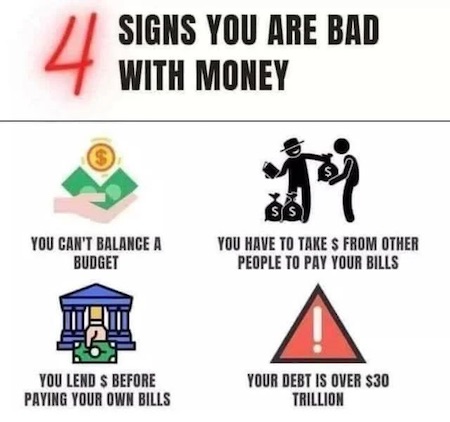

Tucker Glenn Beck



Romanian MEP Cristian Terhes
https://twitter.com/i/status/1567582404193173505


Green bee eater

Support the Automatic Earth in virustime with Paypal, Bitcoin and Patreon.




















